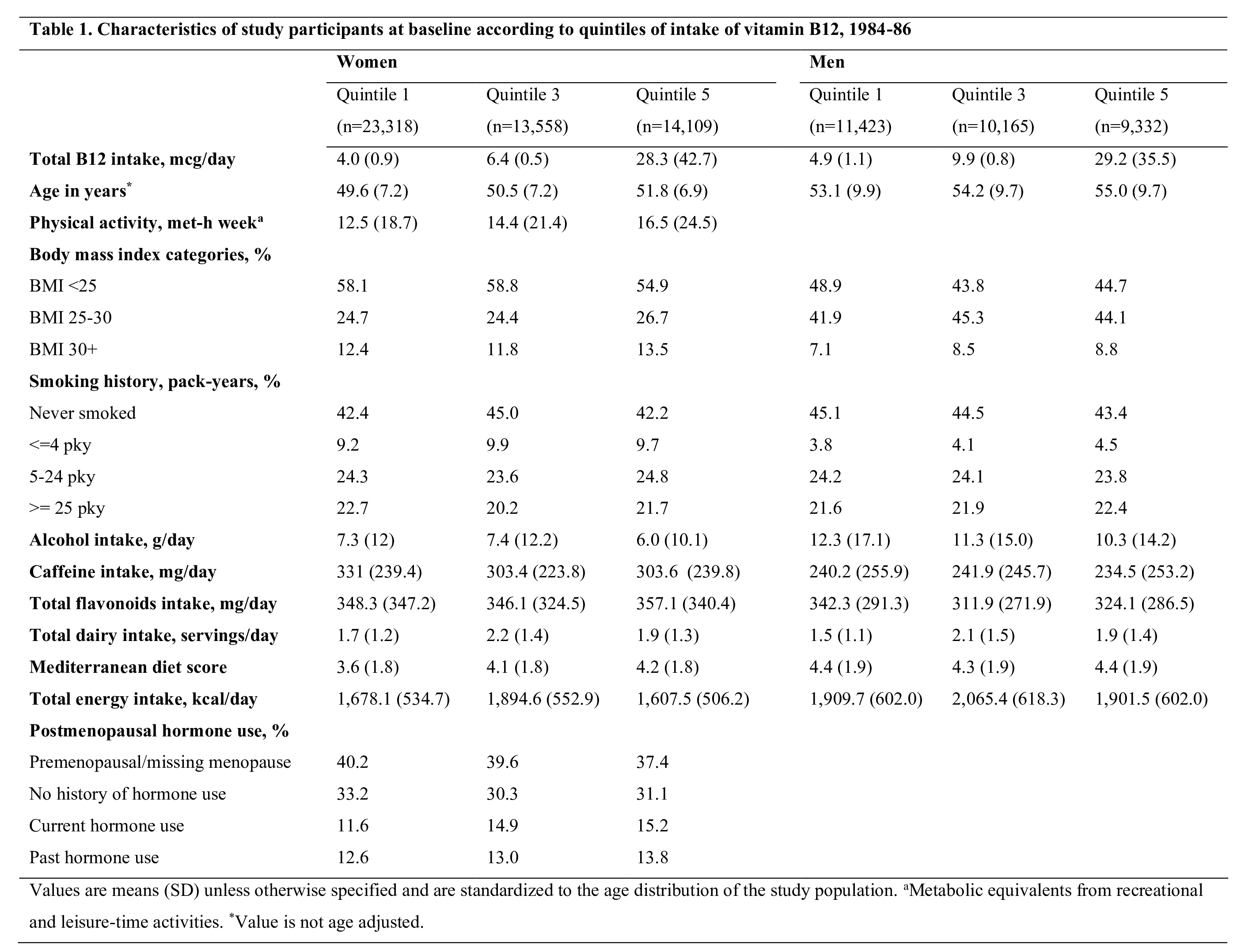Category: Epidemiology
Objective: To examine the association of long-term dietary and supplemental intake of folate, vitamin B6 and vitamin B12 with the incidence of Parkinson’s disease (PD) in two large longitudinal studies of US women and men.
Background: Folate and vitamins B6 and B12 have been proposed as potential protective factors for PD in preclinical studies due to their role in decreasing plasma homocysteine levels as well as other potential neuroprotective effects. However, only two longitudinal studies have been conducted, with inconclusive results.
Method: The study population comprised 80,944 women from the Nurses’ Health Study (1984-2012) and 48,799 men from the Health Professionals Follow-up Study (1986-2012) who completed a validated semi-quantitative food frequency questionnaire (FFQ) at baseline. Measures of dietary, supplemental, and total intake of folate, vitamin B6, and vitamin B12 were based on FFQ responses collected every four years. For each vitamin/source, we fitted age- and time-stratified Cox regression models to estimate the hazard ratio (HR) and 95% confidence interval (CI) of PD according to quintiles of cumulative average intake or baseline intake adjusting for potential confounders. Secondary analyses were conducted using different lagged exposure periods. Cohort-specific estimates were pooled using fixed-effects meta-analysis.
Results: Characteristics of study participants are presented in Table 1. During follow-up, we identified 495 incident PD cases among the women and 621 among the men. Analyses of cumulative average total folate, B6, and B12 intake were not significantly associated with PD risk. Results from 4- and 8-year lag analyses were consistent with this finding. In contrast, a lower PD risk was observed among individuals with higher baseline total intake of vitamin B12 (pooled HR top vs bottom quintile: 0.74; 95% CI: 0.60, 0.89; p-trend 0.001); intake from both diet and supplements contributed to this inverse association. Results for folate and vitamin B6 were less consistent and pointed towards a null association with PD.
Conclusion: The results of this large longitudinal study provide moderate support for a possible protective effect of early vitamin B12 on the development of PD.
To cite this abstract in AMA style:
M. Flores Torres, C. Christine, K. Bjornevik, B. Healy, S. Molsberry, A. Hung, D. Blacker, M. Schwarzschild, A. Ascherio. Long-term dietary and supplemental intake of folate, vitamin B6 and vitamin B12 and the incidence of Parkinson’s disease in a sample of US women and men [abstract]. Mov Disord. 2022; 37 (suppl 2). https://www.mdsabstracts.org/abstract/long-term-dietary-and-supplemental-intake-of-folate-vitamin-b6-and-vitamin-b12-and-the-incidence-of-parkinsons-disease-in-a-sample-of-us-women-and-men/. Accessed February 28, 2026.« Back to 2022 International Congress
MDS Abstracts - https://www.mdsabstracts.org/abstract/long-term-dietary-and-supplemental-intake-of-folate-vitamin-b6-and-vitamin-b12-and-the-incidence-of-parkinsons-disease-in-a-sample-of-us-women-and-men/

